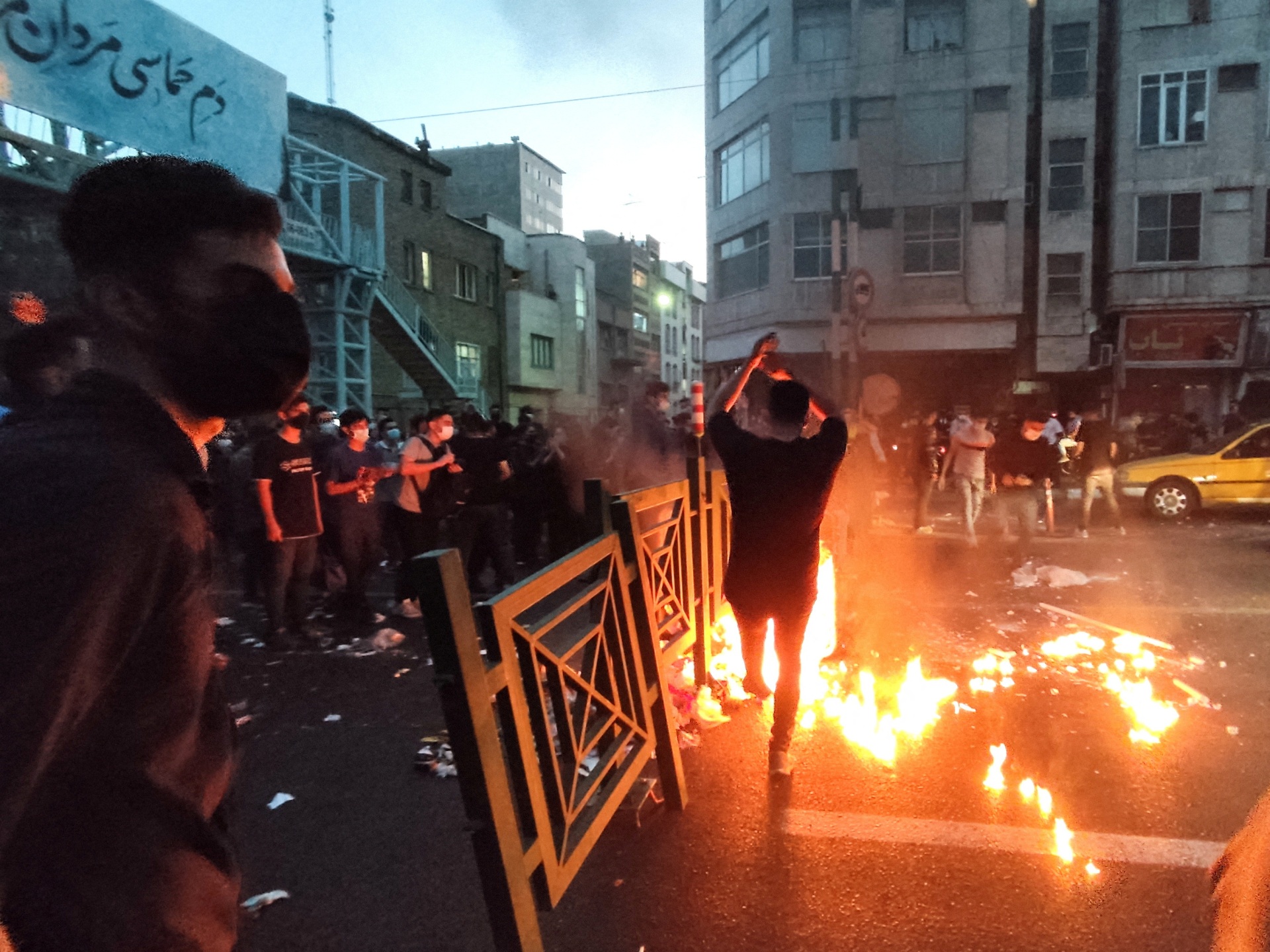
NetBlocks says the outage is the ‘most severe’ since the internet was blocked during 2019’s fuel protests.
Iran has curbed access to social media networks Instagram and WhatsApp amid protests over the death of a woman in police custody, according to residents and internet watchdog NetBlocks.
Significant internet outages were also reported across the country, with one of the biggest mobile phone operators disrupted, leaving millions of Iranians offline.
Last week’s death of 22-year-old Mahsa Amini, who was arrested by morality police in Tehran for “unsuitable attire”, has unleashed a wave of anger over issues including freedom in the Islamic Republic and an economy reeling from sanctions.
At least six protesters have now been killed, according to Iranian media and officials, as well as a police officer and two member of a pro-government militia. However, activist groups say the death toll is higher.
NetBlocks also reported a “nation-scale loss of connectivity” on Iran’s main mobile telephone provider and another company’s network.
WhatsApp’s servers were disrupted on multiple internet providers, hours after Instagram’s services were blocked, London-based NetBlocks said.
The group’s data shows a near-total disruption to internet service in parts of Kurdistan province in western Iran since Monday, while the capital city of Tehran and other parts of the country have also faced disruptions since Friday, when protests first broke out.
⚠️ #Iran is now subject to the most severe internet restrictions since the November 2019 massacre. ▶️ Mobile networks largely shut down (MCI, Rightel, Irancell – partial)
▶️ Regional disruptions observed during protests
▶️ Instagram, WhatsApp restrictedhttps://t.co/8cCHIJA2Oi — NetBlocks (@netblocks) September 21, 2022
Two residents in Tehran and southern Iran said they could only send text and not pictures on WhatsApp and that Instagram appeared to be completely blocked.
Both platforms are owned by Meta, Facebook’s parent company and are among the few social media networks still operating. NetBlocks said the disruptions were the “most severe” since 2019 when the government shut down the internet for about a week to help stifle fuel protests.
Without internet access, it is harder for people to post videos on social media to generate support for their cause or obtain reliable reports on what is happening.
This month’s unrest has been particularly intense in Amini’s home province of northwestern Kurdistan.
The 22-year-old Amini lived in Saqqez, Kurdistan, and was in Tehran when she was detained for what Iran’s ‘morality police’ deemed ‘immodest clothing’, violating Iran’s mandatory modest-dress rules, which were imposed shortly after the Islamic Revolution in 1979.
The authorities say she had a stroke and a heart attack while she was in a “guidance centre” and was transferred to a nearby hospital, where she died several days later.
Amini’s family has denied claims by Tehran’s police chief that she had several pre-existing conditions like epilepsy and diabetes.
Social media websites such as TikTok, YouTube, Twitter and Facebook are routinely blocked in parts of the Islamic Republic, which has some of the strictest internet controls in the world. But tech-savvy residents often use virtual private networks (VPNs) to bypass the curbs.







